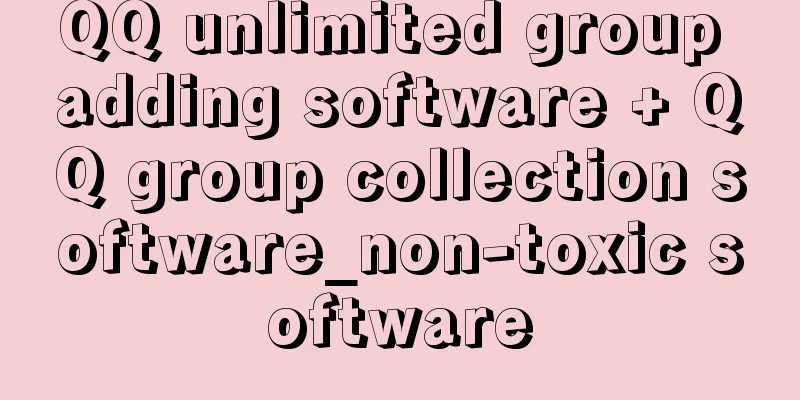Tencent kills three birds with one stone: Meituan-Dianping plays a mid-game in the capital game

|
The tree wants to be still but the wind does not stop. In the previous article "From the merger of Meituan and Dianping, we can see the palace intrigue of investment institutions", people close to the investment of both parties have revealed that Tencent will increase its stake in this round of strategic cooperation. Now, this investment has made great progress. Citing a report from The Wall Street Journal, Meituan and Dianping are in the process of a new round of financing. As part of this round of financing, Tencent is close to reaching a deal with Meituan and Dianping to invest $1 billion in the latter. As a late-stage investor in Dianping, Tencent has been seeking a greater voice in Dianping and has actively promoted the merger of Meituan and Dianping. Tencent's continued investment has given Dianping's early investment institutions an opportunity to exit. This also predicts that Dianping will inevitably be at a disadvantage in the "New Meituan-Dianping" structure. Alibaba, which is also at a disadvantage, will also accelerate its "exit". Breakthrough In this capital game, Tencent is an active supporter of breaking the deadlock. An unconfirmed report claims that Alibaba was not informed of the merger between Meituan and Dianping in advance. However, judging from business logic, this is unlikely, and it may only indirectly indicate that Alibaba is the passive party in this capital merger. In fact, the gaps between Alibaba and Meituan are no longer news. This is why Alibaba has invested in new local life service portals after investing in Meituan, whether it is investment or self-operation. The turning point came on June 23 this year. Alibaba Group and Ant Financial Services Group jointly announced that they would jointly establish a local life service platform company. The joint venture was named "Koubei", which also meant that Koubei.com, which had stopped operating four years ago, was restarted. In order to further demonstrate its ambition in Koubei, Alibaba even appointed Joseph Tsai, the group's No. 2 figure, as the chairman of Koubei.com. All signs indicate that Alibaba wants to re-establish a reliable portal in the local life field, and will invest a lot of resources in this strategic portal. The deadlock is hard to break. Tencent has gradually realized through its investments in Didi, Dianping, JD.com, 58.com, and Bitauto that physical O2O and service O2O are the core of the entire local life service O2O. For Tencent, which has the ability to connect but lacks the complex offline merchant supply chain resources, capital leverage is the best efficiency integration. In the first half of this year, Tencent once again led the investment in Dianping's sixth round of financing, followed by Temasek Holdings, Wanda Group and Fosun Group. The total investment in this round was US$850 million, and Dianping's valuation reached US$4 billion. In just one year, Tencent made two investments in Dianping.com. The first was a strategic investment, where it paid $400 million for a 20% stake in Dianping.com, with the option to increase its stake in the future. The second was a lead investment, where Tencent brought in a group of new strategic investors to help Dianping.com improve its funding and ecosystem layout. However, the best target that can truly help Dianping improve its ecological layout and achieve complementary resource integration is none other than Meituan. After the gap between Meituan and Alibaba and Alibaba's independence, Tencent stepped up its efforts to break through, and together with Sequoia Capital and early investment institutions of both parties, jointly promoted the marriage between Meituan and Dianping. Out After the situation is broken, there will naturally be people who are out. Here, being out does not mean being kicked out, but more about re-evaluating the interests. In this capital game, it is not only the early investment institutions (PE) of both parties that have been eliminated, especially the investors of Dianping.com. In addition, Alibaba is also another party that has been accelerated to exit after Tencent's breakout. Since its establishment in 2003, Dianping has raised funds in six rounds. If the latest round is included, it will be the seventh round. Seven rounds of financing is absolutely magic for a company that is dead even if it is not listed. In recent years, among Internet companies, the only one that has raised funds in seven rounds but has not been listed and has become dilapidated is Vancl. Of course, for investment institutions, seven rounds of financing spanning 10 years is also a painful thing. Among many PE funds, each fund has a fixed term. Generally speaking, a private equity dollar fund will not last more than 10 years. This is also easy to understand. For LPs (limited partners), they also need to pay attention to the investment return cycle. Let's briefly review Dianping's early financing. In 2006, it received the first investment of US$1 million from Sequoia Capital. In 2007, Google Capital invested US$4 million in the second round. In 2011, Sequoia Capital, Qiming Venture Partners, Lightspeed Capital and others invested US$100 million. In 2012, Capital Today, Sequoia Capital and other investors invested US$64 million. Even in the extreme case, a new fund raised by Sequoia Capital in 2006 happened to invest in the Dianping project, and by 2015, this investment fund had reached the point of closing. Moreover, other PE investment projects in Dianping were not all newly established funds. Therefore, Tencent's investment allowed early investors to exit successfully. On the other hand, it also gave subsequent investors peace of mind. One noteworthy detail is that Capital Today was the lead investor in Dianping's fourth round of financing and was also the matchmaker that actively promoted Tencent's investment. Coincidentally, Capital Today was also an early investor in JD.com. Then, as the shares are diluted, the voice of Dianping's management team will also be weakened. Before the merger, comparing the valuations of both parties, Meituan's valuation was 7 billion US dollars, and Dianping's valuation was 4 billion US dollars. The latter was at a disadvantage in the merger. Tencent continued to increase its shareholding ratio, causing the shares of Dianping's management team to decrease accordingly. This seems to cater to the voices in the market that are bad-mouthing Dianping. However, in a capital marriage of this scale, after their respective interests have been determined, the management of the companies will abide by the negotiation contract, complete their respective duties during the constraint period, and do a good job in business integration and team stability maintenance. Tencent's continued investment has also made Meituan's investor Alibaba even more embarrassed. In the two rounds of Tencent's investment, it obtained at least 25% to 30% of Dianping's shares. The additional investment of US$1 billion this time will further dilute Dianping's shares, thereby further increasing its shares in "New Meituan". However, public data shows that Alibaba only holds 10% of Meituan's shares. According to the 5:5 stock swap method after the merger of "New Meituan", Alibaba's equity will be further diluted, far behind Tencent, and it will change from a strategic investor to a pure financial investment. This is consistent with Alibaba's recent tactical moves to establish its own business. Restarting Koubei, investing in Suning, holding a controlling stake in Intime, etc., all indicate that Alibaba is going to make a big move on its own in the local life service platform. Game A new game has quietly begun. After this round of capital competition, Tencent became the biggest winner of the “New Meituan-Da”. In addition to investing money, Tencent will certainly invest more resources, most directly including WeChat, QQ Mobile, and even Soso Maps, which touch the life service scenarios of consumers. Tencent has also established its own moat in the field of local life services through "New Meituan-Dianping", and together with its investees 58.com, Didi Kuaidi, Yiche, and JD.com, it has connected consumers' food, clothing, housing and transportation. Without wasting any soldiers, they succeeded in conquering the city. This is particularly evident in the process of BAT's extension to offline. In the past, BAT adapted to the Internet's small-step and fast-paced approach and achieved rapid entry with light assets. Today, after accumulating a large number of users and funds, BAT has completed the transformation of capital leveraging the market. This is generally the case for Baidu, Tencent, and Alibaba in the mobile Internet stage. In its third quarter financial report, Baidu continuously emphasized its O2O strategy and launched an online marketing solution for local life services: seemingly integrating comprehensive applications and services including Baidu Mobile, Baidu Maps, and Baidu Nuomi, it actually aggregates traffic better and connects people and services more accurately. Among them, Nuomi is Baidu's investment layout to extend offline and reach life consumption scenarios. What pushed capital to the top was the marriage between Qunar and Ctrip. Baidu became a major shareholder of Ctrip and took over an important entrance to the online travel market. As for Alibaba, after the failure of its investment in Meituan, the focus has shifted to self-operation. For example, the addition of life scenarios to Alipay and the restart of Koubei.com complement each other. This situation may not last long. After Koubei invests more resources, Alipay will see a reduction in its burden in the future. Currently, the Alipay APP carries too many applications, including the needs of both Alibaba Group and users. How to balance pan-financial services and business expansion will be a new test. However, we cannot ignore Alibaba's investment in capital. Alibaba has fully controlled Intime, became the second largest shareholder of Suning, and launched the "10,000 Stores Celebration" event on November 11. These typical O2O layouts show that Alibaba has not given up the leverage of capital and resources. After a round of capital bureau ends, a new capital bureau will emerge. Business is a game of interests, and all stakeholders are involved. |
<<: Front-end - the most artistic programmer
>>: Which is better for making money, iOS or Android?
Recommend
Cai Zhongyang's mobile phone photography color adjustment system course, from a novice to a master of mobile phone photography
Cai Zhongyang's mobile phone photography colo...
8 words, a simple and rough analysis of the problem that all information flow advertising optimizers have been confused about
Recently, I have received 20 to 30 private messag...
Case analysis: The confusion of an O2O product manager!
The theory is boring. After reading it, I just fe...
Blockchain Hyperledger enterprise-level development project practical operation Hyperledger real project case
Blockchain Hyperledger Enterprise Development Pro...
Inventory of classic running video materials in information flow
Recently, not only newbies but also colleagues wh...
Is it expensive to produce the Honghe Furniture Mini Program? Red River Furniture Mini Program Production Cost
There is no doubt that the topic of mini programs...
A complete guide to Tik Tok, from beginner to master!
This article has a total of 13,000 words, and it ...
Didi ToB business full case review
When Yidao first started offering private cars ar...
ELISA《YouTube Operation and Promotion Practical Skills》How to play YOUTUBE in the eyes of foreigners
Training course content: How to use YouTube in th...
The new version of App Store may have a severe blow to the ranking business, but there is still hope
On September 20, Apple officially pushed the iOS ...
The two newly confirmed cases in the country were both imported from abroad, so we still need to be cautious about the epidemic!
From 0:00 to 24:00 on May 5, 31 provinces (autono...
How to create a mini program for sending recruitment information or job search information?
Q: How to create a mini program for sending recru...
The Ministry of Industry and Information Technology released 136 apps that violated user rights: Tencent Mobile Manager was among them
On March 12, the Ministry of Industry and Informa...
Enable HSTS to force the browser to redirect to HTTPS access
After the entire website is HTTPS, if the user ma...
Will WP become the real 1% in 4 years?
The mobile operating system market has always bee...









